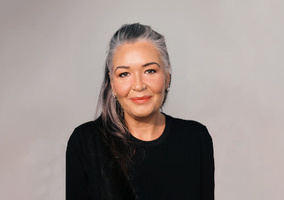Camden People’s Theatre (CPT) has been criticised for publishing job listings encouraging applications from individuals who identify as “working-class, benefit class, criminal class and/or underclass”.
The London-based charity used the terms in advertisements for an artistic director and joint CEO, as well as one for a development manager.
Its website states: “We welcome and encourage applications from individuals without formal education and/or who identify as:
- D/deaf and/or disabled
- Neurodiverse
- Working-class, benefit class, criminal class and/or underclass
- Global majority and/or migrant
- LGBTQ+.”
Several people on social media including a number of charity leaders expressed concern about the adverts’ language regarding socio-economic class, which remain live at the time of writing.
In response, the charity said it regretted any offence caused and was reviewing its use of the terms.
‘Insulting on many levels’
Several charity leaders criticised the adverts’ language on social media, including Social Mobility Foundation chief executive Sarah Atkinson, who described it as “horrifying”.
Anne-Marie Canning, CEO of the Brilliant Club charity said the language “seems insulting on many levels to many people”.
I have never seen this expression about socio-economic diversity before. It’s in an advert for a job. It seems insulting on many levels to many people. pic.twitter.com/Q2u5fO5eG1
— Anne-Marie Canning (@amcanning) May 20, 2024
Sophie Pender, founder and chief executive of the 93% Club charity, wrote: “Even amongst the most well meaning efforts to diversify, class continues to be the last socially acceptable form of discrimination.”
Charity Commission data for the financial year ending 31 March 2023 puts the charity’s income at £502,000, which includes £33,900 from three government grants, and expenditure at £586,000.
There has recently been some concern raised around wording in our current advertisement for a new Artistic Director/Joint CEO. Our response is as follows:
CPT statement
The charity said in a statement: “As the name suggests, Camden People’s Theatre takes access and inclusion really seriously.
“We constantly consult on and modify what we do and how we communicate to make sure we’re welcoming and accessible to as many people as possible – especially those who are excluded from the arts, more so now than ever.
“That’s the spirit in which this terminology was used – and we are not the only organisation to use it.
“We regret that it has caused offence in some quarters and we are currently reviewing its use, to make sure we continue to be as inclusive and as respectful as possible.
“We also warmly welcome the interest in arts and social inclusion that the reporting around this issue implies – and we hope to see it sustained.
“The conversation around access to and representation in the arts, and indeed in the media, is a vital one, and we’re committed to continue learning from and contributing to it.”
Related Articles











